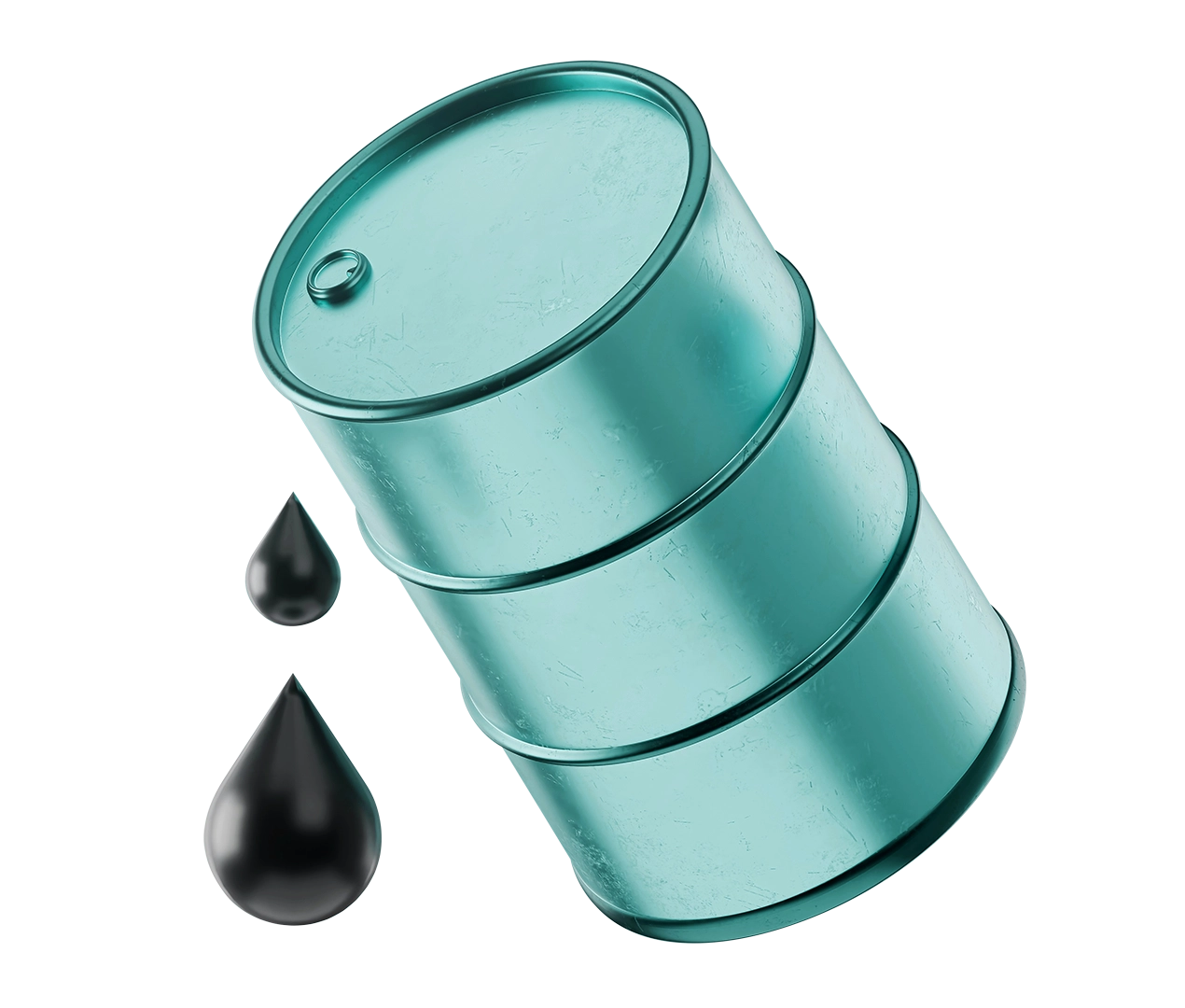![]() Disclaimer: CFDs are complex instruments and come with a high risk of losing money rapidly due to leverage. You should consider whether you understand how CFDs work and whether you can afford to take the high risk of losing your money.
Disclaimer: CFDs are complex instruments and come with a high risk of losing money rapidly due to leverage. You should consider whether you understand how CFDs work and whether you can afford to take the high risk of losing your money.
-
Getting Started
-
Platforms
-
Products
-
Learn
-
Analysis
-
Academy
-
Promotions
-
Trading
-
Getting Started
-
Platforms
-
Products
-
-
Education
-
Learn
-
Analysis
-
Academy
-
-
Promotions
-
Promotions
-
-
Company
US
Languages
-
简体中文
Simplified Chinese
-
한국어
Korean
-
Melayu
Maleyu
-
Việt
Vietnamese
-
ภาษาไทย
Thai
-
Indonesian
Indonesian
-
العربية
Arabic
-
日本語
Japanease
-
繁體中文
Traditional Chinese
-
Français
French
-
Español
Spanish
-
Português
Portuguese
-
Deutsch
German
-
فارسی
Persian
-
Italiano
Italian
-
Русский язык
Russian
-
Türkçe
Turkish
-
Polski
Polish
-
हिंदी
Hindi
Fuel Your Growth with Oil CFD Trading
Oil remains a key driver of global markets, offering dynamic trading opportunities amid shifting supply and demand.

Drill Into New Opportunities with Oil CFD Trading
-
Oil prices react to global events, offering traders big opportunities.
-
As a key energy source, oil remains a highly liquid asset due to its high demand.
-
Choose to trade oil CFDs to match your strategy.


How to Start Oil Trading With STARTRADER
For a customized trading experience in the energy market, STARTRADER offers you a demo account to start practicing. However, you first:
-
Step 1- Gain a deeper understanding of the energy products you can trade.
-
Step 2- Start with a demo account to test your energy strategies.
-
Step 3- Shift to a live account when you feel ready.
-
Step 4- Try our oil trading platform
Why to Start Oil Trading With STARTRADER
A top-tier Trading App
Simple, secure, and easy to use, it provides seamless access to the market anytime, anywhere. With a customizable watchlist, you can effortlessly track all your investments and stay ahead, no matter where you are.
100-Millisecond Execution
In the trading world, fast execution can make all the difference. With our ultra-low latency infrastructure, your trades are executed in milliseconds to help you seize opportunities on the spot.
Ultra-tight Spreads
Enjoy some of the most competitive spreads on a top-tier gold platform, starting from 0.0 pips. Lower trading costs mean more potential gains.
24/6 Customized Support
Get guidance and information about your trading anytime you need it. We will support you with our extensive expertise and dedication.
High Leverage up to 1:1000
With flexible leverage up to 1:1000*, you can take larger positions with smaller capital, gaining greater market exposure across a wide range of agricultural CFD products. However, it's important to recognise that higher leverage also significantly increases the risk of potential losses. Traders should be fully aware of these risks, stay informed, and implement effective risk management strategies. *Leverage above 1:30 may not be available in certain regions due to regulatory restrictions.
Multiple Trading Accounts
From demo to standard and ECN accounts, you can choose the one that fits your trading style and level of experience. If you're new to trading, begin with a demo account, or opt for Standard and ECN accounts to access competitive spreads and leverage.
Frequently Asked Questions
-
1.
What is Brent Oil?
Brent crude oil, usually referred to simply as Brent, is a sweet, light crude oil drilled out of the North Sea. It is considered to be among the major oil benchmarks globally, next to WTI (West Texas Intermediate) and Dubai crude.
Major Features of Brent Crude Oil:
- Low sulfur and light crude.
- Simplifies refining to make gasoline and diesel.
- Made in the North Sea and so is an essential European oil benchmark.
Thanks to its quality and geographical location, Brent crude serves as a very common reference in forex crude oil trading, futures markets, and contracts across the world.
2.What is the difference between Brent crude and WTI crude?
Brent crude and WTI (West Texas Intermediate) are the most liquidly traded benchmarks of crude oil, yet they have various differences:
- Location: Brent crude is pulled out of the North Sea, whereas WTI is sourced from onshore reservoirs in the U.S., specifically Texas and Oklahoma.
- Sulfur Content: Brent is a sweet, low-sulfur crude, whereas WTI contains even less sulfur and is therefore slightly sweeter.
- Density: Brent crude is heavier compared to WTI, although both are light crude oils.
- Price: Brent crude generally sells for a premium compared to WTI because of international demand and transport considerations. WTI, which is landlocked crude, usually sells at a lower price as a result of storage and shipping limitations.
- Market Usage: Brent crude serves as the world benchmark oil price that affects approximately two-thirds of the world's international crude pricing. WTI serves mainly as an American benchmark.
These differences make Brent crude the standard pricing basis for the majority of international oil contracts.
-
3.
Why is Brent crude used as a benchmark?
Brent crude is used extensively as an oil price benchmark due to the following reasons:
- Global Relevance: Because it is produced in the North Sea and exported globally, it represents international supply and demand.
- Liquid and Stable Market: Brent crude has a very liquid market with frequent trading in futures, CFDs, and spot markets.
- Widely Used Pricing Model: Most Brent crude oil trading platforms and financial products utilize Brent pricing for contracts.
It is estimated that two-thirds of the world's oil contracts are priced on Brent crude.
4.What is Brent crude CFD trading?
Brent crude CFD trading is speculating on prices of Brent oil without holding the physical commodity. CFD (Contract for Difference) trading enables traders to make a profit from either direction of price movement—long (buy) or short (sell).
-
5.
How does Brent CFD trading function?
When you are trading Brent CFDs, you are agreeing on a contract with a broker to settle the difference in price between opening and closing.
- Go Long (Buy): If you believe Brent prices will increase.
- Go Short (Sell): If you believe Brent prices will decrease.
Unlike futures contracts, CFDs don't involve ownership of physical oil, so it is more convenient for retail traders to trade Brent crude oil.
6.What are the benefits of trading Brent crude CFDs?
Brent CFD trading has some advantages:
- No Physical Ownership Required: You don't have to hold or ship oil.
- Leverage: Most brokers provide leveraged trading, where you can use less capital to control greater positions.
- 24/5 Market Access: In contrast to stock markets, crude oil forex trading happens almost 24 hours a day.
- Profit in Any Market Condition: Regardless of whether prices rise or fall, you can profit when you go long or short.
- Low Trading Costs: CFDs usually have lower charges than futures or physical oil contracts.
With these benefits, most traders find Brent crude oil CFD trading a convenient means of betting on oil prices.
-
7.
Which platforms offer Brent crude CFD trading?
Numerous online trading platforms and Brent crude oil brokers offer CFD trading. Some of the leading platforms are:
- - MetaTrader 4 (MT4) & MetaTrader 5 (MT5) – Most commonly used trading platforms for CFDs.
- - STARTRADER – It is one of the most used CFD trading platforms
- - cTrader – Famous for its high execution speeds and sophisticated charting features.
- - NinjaTrader – Used by professional traders.
- - Proprietary Broker Platforms – eToro, Plus500, and IG Markets have their own custom trading platforms.
When selecting a Brent Oil Trading platform, keep in mind the fees, leverage, access to markets, and customer support.
8.What is the Brent crude futures trading symbol?
The symbol for Brent crude futures is BRN on most exchanges. Yet, according to the exchange, the ticker symbol can be different:
- ICE Futures Europe: BRN
- CME Group (NYMEX): BZ
- Forex & CFD Brokers: Usually traded under "Brent" or "UKOIL"
Futures contracts also have expiration months designated as BRN1! (for the closest contract) or BRN2! (for the following contract month).
-
9.
What are the trading hours for Brent crude oil?
Brent crude oil trading is done on extended hours because it is an international commodity. The typical trading hours for Brent crude futures (ICE Futures Europe) are:
- Monday to Friday: 01:00 – 23:00 GMT
- Pre-market Trading: Usually available through CFD brokers
As Brent is heavily traded in futures and forex crude oil trading markets, liquidity is high nearly 24 hours a day.
10.What factors influence Brent crude oil prices?
The Brent crude oil price varies based on a number of factors, making it a desirable but volatile trading commodity. Knowing these determinants enables traders to make well-informed decisions when trading Brent crude oil.
1. Supply and Demand Patterns
- - When demand rises (e.g., during economic upturn), prices increase.
- - When supply exceeds demand (e.g., as a result of OPEC+ oversupply), prices decline.
2. Geopolitical Developments
- Wars, trade tensions, and sanctions against oil-producing countries (e.g., Iran, Russia) may lead to supply interruptions, increasing prices.
3. OPEC+ Actions
- The Organization of the Petroleum Exporting Countries (OPEC) and its partners (OPEC+) control oil production volumes. Their actions directly influence Brent crude oil trading prices.
4. Strength of the U.S. Dollar
- Brent crude is denominated in USD, thus when the dollar gets stronger, Brent crude prices decrease, and when it weakens, the prices increase.
5. Natural Disasters & Weather Conditions
- Natural disasters or hurricanes in producing countries can destroy production facilities and reduce supply in the world.
6. Economic Indicators
- GDP growth, employment figures, and manufacturing indices give us hints of forthcoming oil demand. A robust economy translates into more oil demand, which results in increasing Brent CFD prices.
-
11.
What is Brent crude oil technical analysis?
Brent crude oil technical analysis is an examination of past price movements in order to forecast future trends. Traders use charts, patterns, and indicators to spot opportunities in Brent crude oil trading.
Major Technical Indicators for Brent Crude Analysis:
- Moving Averages (MA): Helps identify trends (e.g., 50-day & 200-day MA crossovers).
- Relative Strength Index (RSI): Provides overbought/oversold conditions.
- MACD (Moving Average Convergence Divergence): Assists in identifying shifts in momentum.
- Fibonacci Retracement: Determines possible support/resistance levels.
- Bollinger Bands: Identifies volatility and possible breakouts.
With Brent crude oil technical analysis, the movements of the market can be foreseen as compared to waiting only for fundamental news.
12.Where can I obtain Brent Crude Oil Price Analysis?
Traders can access the latest Brent crude oil analysis by using some sources such as:
1. Financial News Sites:
- - Bloomberg, Reuters, CNBC – Provide real-time news of the oil market.
- - Investing.com & TradingView – Offer interactive price charts and analyst opinions.
2. Economic Calendars:
- Websites such as ForexFactory and DailyFX follow significant oil-related news and OPEC meetings.
3. Trading Platforms:
- All major Brent crude oil trading platforms, including MT4, MT5, and cTrader, offer real-time price information and technical indicators.
4. Broker Research Reports:
- Leading forex brokers provide daily and weekly reports analyzing Brent crude oil trading trends.
-
13.
How to Trade Brent Crude Oil?
Traders can trade Brent crude oil in various ways, based on their risk appetite and trading strategy.
1. Trading Brent Crude CFDs
- CFD Brent trading is the most convenient method for retail traders. As discussed above, CFDs enable traders to bet on price changes without holding physical oil.
2. Brent Crude Futures Trading
- For long-term exposure, Brent crude futures contracts (symbolized by the Brent crude futures symbol BRN) are traded on ICE Futures Europe and CME Group. Futures contracts need more capital but provide better transparency.
3. Trading Brent Crude Options
- Options trading gives the traders the ability to purchase "call" or "put" contracts, which offers more hedging and speculation flexibility.
4. Forex Crude Oil Trading
- Forex brokers provide Brent crude oil trading in addition to currency pairs. This makes it possible for traders to merge forex and commodity trading in a single platform.
5. Investing in Oil ETFs & Stocks
- Long-term investors can have indirect exposure to Brent crude prices through exchange-traded funds (ETFs) and oil stocks (ExxonMobil, BP, Shell, etc.).
14.Selecting the Best Brent Crude Oil Trading Platform
Choosing the appropriate Brent crude oil trading platform is important to be efficient in trading. Some of the essential features to look for are as follows:
1. Regulation & Security
- Make sure the platform you choose is regulated by a reputable financial authority.
2. Trading Fees & Spreads
- Consider brokers having low spreads and commissions on Brent CFD transactions.
3. Trading Tools & Charting Software
- MT4 and MT5 platforms have great technical analysis capabilities for the analysis of Brent crude oil.
4. Leverage Options
- Leverage is provided by some brokers, which can potentially boost profits but also increases the risk, as losses can exceed your initial capital.
5. Customer Support & Execution Speed
- Responsive customer service and fast trade execution are crucial for active traders.
-
15.
Conclusion: Is Brent Crude Oil Trading Worth It?
Brent crude oil trading is a profitable venture for traders who know how to read market trends and technical analysis. Whether by Brent crude CFDs, futures, or forex crude oil trading, there are several ways to be in the market.
To be successful in Brent crude oil trading, remember:
- Be current on geopolitical events and OPEC announcements.
- Use Brent crude oil technical analysis to identify trade opportunities.
- Choose a Brent crude oil trading platform that fits your needs.
- Manage risk with stop-loss and proper leverage control.
With the right strategy and discipline, traders can capitalize on the price movements of one of the world’s most important commodities.
Start trading with A globally leading broker
Want to start trading?

We use cookies to understand how you use our website and to give you the best possible experience. You can find out more by viewing our Cookie Policy.











